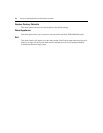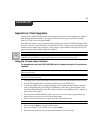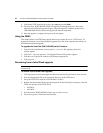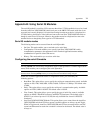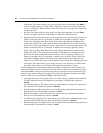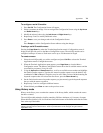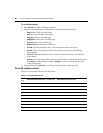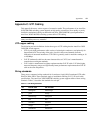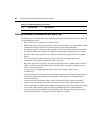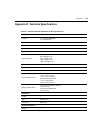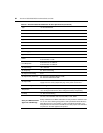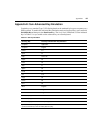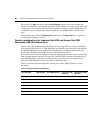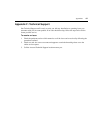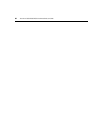
82 AutoView 3050/3100/3200 Switch Installer/User Guide
Cabling installation, maintenance and safety tips
The following is a list of important safety considerations that should be reviewed prior to installing
or maintaining your cables:
• Keep all UTP runs to a maximum of 100 feet each.
• Maintain the twists of the pairs all the way to the point of termination, or no more that one-half
inch
untwisted. Do not skin off more than one inch of jacket while terminating.
• If bending the cable is necessary, make it gradual with no bend sharper than a one inch radius.
Al
lowing the cable to be sharply bent or kinked can permanently damage the cable’s interior.
• Dress the cables neatly with cable ties, using low to moderate pressure. Do not over tighten
the ti
es.
• Cross-connect cables where necessary, using rated punch blocks, patch panels and
compon
ents. Do not splice or bridge the cable at any point.
• Keep the UTP cable as far away as possible from po
tential sources of EMI, such as electrical
cables, transformers and light fixtures. Do not tie the cables to electrical conduits or lay the
cables on electrical fixtures.
• Always test every installed segment with a cable tester. “Toning” alone is not an
accept
able test.
• Always install jacks so as to prevent dust and other contaminants from settling on the contacts.
The con
tacts of the jack should face up on the flush mounted plates, or left/right/down on
surface mount boxes.
• Always leave extra slack on the cables, neatly coi
led in the ceiling or nearest concealed
location. Leave at least five feet at the work outlet side and 15 feet at the patch panel side.
• Choose either 568A or 568B wiring standard before beginning. Wire all jacks and patch panels
for t
he same wiring scheme. Don’t mix 568A and 568B wiring in the same installation.
• Always obey all local and national fire and building
codes. Be sure to firestop all the cables
that penetrate a firewall. Use plenum rated cable where it is required.
8 brown brown
Table C.1: UTP Wiring Standards (Continued)
Pi
n EIA/TIA 568A EIA/TIA 568B



